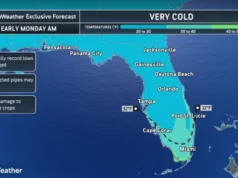
Written by Sophia Acevedo and Tanza Loudenback; edited by Jasmine Suarez
Scammers have turned to peer-to-peer (P2P) payment networks like Zelle to con people out of their money. If you fall victim to a Zelle scam, it can be more challenging to recover your lost money than if you were a victim of outright fraud.
Here’s what you should know about Zelle scams to protect yourself while using the payment app.
How Zelle scams work
A scam occurs when a person or company tries to deceive you into directly giving them money or sharing personal information so they can access it.
John Breyault, vice president of public, telecommunications, and fraud at the National Consumer League, says scammers take advantage of new payment technologies as they emerge. According to Breyault, scammers have now moved onto Zelle and other payment apps for three main reasons:
- Money sent through payment apps is available quickly after being sent.
- The money is difficult to get back due to regulation.
- Scammers can remain out of the reach of law enforcement by setting up dummy accounts or using other tactics.
Overview of Zelle policies
Zelle works differently from other P2P payment apps because it’s partnered with credit unions and banks. You can use your bank’s mobile app or online banking platform to make a payment via Zelle or download the Zelle app.
“For many consumers, that creates an impression, incorrectly, that the same kind of protections they get for other transfers through their bank, they’re going to get on Zelle. That’s not true,” Breyault says.
Alexis Castorina, senior director of consumer education at Zelle, says payments on Zelle should be treated like sending cash.
“Zelle does not offer a protection program for authorized payments. Once you authorize a payment to be sent with Zelle, you can’t cancel it if the recipient is already enrolled because money is going directly into that recipient’s bank account within minutes,” Castorina says.
As a result, when you have fallen for a scam, the Zelle website says you must contact your financial institution for help.
Disclaimer
The information contained in South Florida Reporter is for general information purposes only.
The South Florida Reporter assumes no responsibility for errors or omissions in the contents of the Service.
In no event shall the South Florida Reporter be liable for any special, direct, indirect, consequential, or incidental damages or any damages whatsoever, whether in an action of contract, negligence or other tort, arising out of or in connection with the use of the Service or the contents of the Service.
The Company reserves the right to make additions, deletions, or modifications to the contents of the Service at any time without prior notice.
The Company does not warrant that the Service is free of viruses or other harmful components












